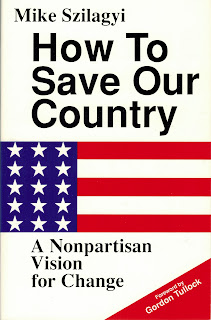A new book about Complexity is available at amazon.com
Complexity is a new approach studying how interconnected parts give rise to the collective behavior of large systems and how the systems interact with their environment. It cuts across all traditional disciplines: science, engineering, medicine, management, etc. This book introduces the readers to
· the key issues associated with Complexity,
· the main approaches to study Complexity,
· the ways of describing complex systems,
· the process of formation of complex systems,
· how local interactions give rise to global patterns of behavior,
· emergent phenomena,
· analytical and computational tools for studying Complexity,
· the main application areas of Complexity.
This book is an introduction to Complexity Science. By its nature, it is highly interdisciplinary. Therefore, we attempted to use only as little elementary mathematics as possible.
CONTENTS
1.Why Complexity?
2.What is Complexity?
2.1. Agents
2.2. Nonlinearity
2.3. Emergence
2.4. Self-organization
2.5. Information
2.6. Additional properties of complex systems
2.7. Measuring complexity
3. General System Theory
4. Cybernetics
5. Chaos
6. Adaptation and Evolution
6.1. Adaptation
6.2. Evolution
6.2.1. Classifier Systems
6. 3. Genetic Algorithm
7. Swarms
7.1. Bacteria
7.2. Slime molds
7.3. Ants
7.4. Bees
7.5. Birds
7.6. Swarm optimization
7.7. Human crowds
8. Networks
8.1. Power laws
8.1.1. Self-organized criticality
8.2. Small-world networks
8.3. Scale-free networks
8.4. Neural networks
8.4.1. The living neuron
8.4.2. The Perceptron
8.4.3. Multi-layer neural network
9. Fractals
9.1. Early fractals
9.2. Fractal dimension
9.3. The Mandelbrot Set
10. Search
10.1. Basic tree search strategies
10.1.1. Depth-first search
10.1.2. Breadth-first search
10.1.3. Steepest descent search
10.1.4. Branch and bound search
10.1.5. Bidirectional search
10.1.6. Problem reduction by the use of AND / OR trees
10.2. Simulated Annealing
10.3. Dynamic Programming
10.4. Mathematical optimization
10.5. The Traveling Salesman Problem
11. Cellular Automata
11.1. John Neumann
11.2. The Parity Model
11.3. The Gossip Model
11.4. The Majority Model
11.5. The Finite Difference Method
11.6. The Game of Life
11.7. One-dimensional Cellular Automata
11.8. Random Boolean Networks
12. Games
12.1. Two-person constant sum games
12.2. General two-person games
12.2.1. Prisoners’ Dilemma
12.2.2. Chicken
12.2.3. Benevolent Chicken
12.2.4. Leader
12.2.5. Battle of the Sexes
12.2.6. Stag Hunt
12.2.7. Deadlock
12.2.8. Dilemmas
12.3. Axelrod’s tournaments
12.4. N-person Games
12.4.1. Agent personalities
12.4.2. Transition from 2-person to N-person games
12.4.3. Experiments
12.4.3.1. N-person Prisoners’ Dilemma
12.4.3.1.1. Pavlovian agents
12.4.3.1.2. Accountants
12.4.3.1.3. Greedy agents
12.4.3.1.4. Conformists
12.4.3.1.5. Mixed personalities
12.4.3.2. N-person Chicken Dilemma
12.4.3.2.1. Pavlovian agents
12.4.3.2.2. Greedy agents
12.4.3.3. N-person Battle of Sexes game.
12.4.3.4. N-person games with crossing payoff functions
12.4.3.5. N-person Game of Life
12.4.3.6. Transitions between different N-person games
12.4.4. Analytical solutions of N-person games
12.4.5. Practical applications
12.4.6. Conclusion
13. Modeling
13.1. Agent-based simulation
13.1.1. Sugarscape
13.1.2. ECE 408/508
14. Decision heuristics
15. Case studies
15. 1. Artificial Life
15.2. Artificial Intelligence
15.3. Complexity Economics
15.4. Human Society
15.5. Organizations
15.6. Public Policy
15.7. Traffic jams
16. Resources
16. 1. Journals
16.2. Articles in Scientific American
16.3. Web sites
17. References and Additional Reading

